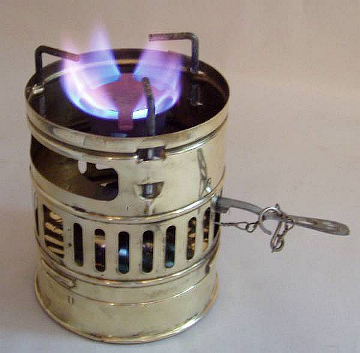An Ode To Colin Fletcher

05/25/2022
A post on a guitar forum reminded me of a really tangential story for my youth and adulthood. I was one of the initial wave of new young hikers coming out of the '60s and '70s renewed appreciation for nature. I say that, but to be appropriately humble, we of the '60s and '70s probably learned everything that sparked our love of nature from our parents. I know my love of nature started while accompanying my family on hiking and camping trips in the Great Smoky Mountains and East Tennessee. The Boy Scouts kicked that interest into high gear for me. The ideals and principles of respect for nature and self-sufficiency that they espoused inspired me to venture into the woods, and I idealistically embraced their values. However, I eventually abandon the big troop-wide hikes that they organized and sought out solo hiking. The solo hiking movement integrated discipline, spirituality, and philosophy, and the father of that movement was one Colin Fletcher. Fletcher was a Welsh transplant to the USA. In the 1940s he became a lieutenant in the Royal Marines and stormed the Normandy beach on June 6th, 1944. After surviving the war he became an absolute fan of nature, of hiking, and of long, solo expeditions. He also became determined to become a writer. After one of his adventures he penned an epic odyssey, The Man Who Walked Through Time, a chronicle of his expedition through the length of the Grand Canyon National Park. Along the way he experienced a spiritual odyssey as well, reflecting upon the incredible long life of the Canyon and man's short intrusion into it. Fletcher was a deep spiritual influence on me, at least as far as the spiritual aspects of hiking were concerned. He eventually wrote The Complete Walker, a rather philosophical how-to book that became the bible of the hiking movement of the time. It has been said that Fletcher was the father of the modern hiking industry, and that might very well be true.

Colin loved the Svea 123 hiking stove. The Svea is a tiny, lightweight brass stove from Sweden that is fueled by white gas. It has its roots in the 1800s and has changed remarkably little over the years. Believe it or not, it is still available to this day, though now built by manufacturing rival Optimus in Taiwan. The glow and sputtery sound of the Svea warms up a cold, wet, lonely night alone in the wilderness like nothing else. It can warm your water in minutes for coffee, tea, or dinner. Being a Welshman, Fletcher loved his tea. He also loved the rituals and routines surrounding extending walking. He described in detail the little ritual he used to get his stove started and cook over it in his books, and I loved the almost spiritual way he described that ritual. So, in 1971 I got myself the Optimus Corporation's version of that stove, the Model 80, and created my own little start-up ritual. That stove served me loyally for years, warming up my hiking evenings and mornings. While other hikers went to lighter, more high-tech propane stoves, I stuck with my Optimus.
In my early twenties I got married and started raising a family. We camped but we didn't do a lot of hiking, so my hiking gear ended up mostly hanging in the garage and gathering dust. I'd pull out the stove occasionally when we had a hurricane and lost power. Then for some reason in 2007, I was inspired to do a little research on Fletcher. I discovered that six years before, while walking to a town council meeting he had been hit by a car and very nearly killed. By dint of his excellent health, he eventually got back on his feet and continued to walk and write. Just before I began my research he had died from complications from that accident. I was deeply saddened by the news.
Later that evening I went out to the garage and took down my backpack from high on the wall where it hangs. I dug through and found my little Optimus stove, nestled in the outside pocket it always occupied. There was still fuel in the tank. I set the stove on the driveway outside my home and carefully went through my little starting ritual. The stove responded by immediately bursting into its chuffling bloom of sound. I put on a little pot of water and sat back on a worn camp chair, basking in the sputtery cheer of the stove and meditating on the life of this mentor of my youth. When the water reached a boil, I shut off the little stove. Instantly, I felt the silence, or rather the unique, local symphony of nature, come rushing in to replace the stove's sound, just as Fletcher had written about. Perhaps I would have never reflected on that sudden inrush, had I not read The Man Who Walked Through Time. Perhaps I would never have owned and used and loved such a stove without his influence. Perhaps I would never have walked the many, many miles that I did through the beautiful backcountry surrounding my home. But I did. That evening, rather than making my usual coffee, I brewed a nice cup of one of my favorite teas, Bigelow's Constant Comment. When it was ready, I once again sat back meditatively in my camp chair, stared out into a glorious sunset, and toasted my remote friend and mentor, Colin Fletcher.
= =
=


